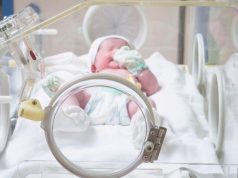Small reduction seen in incidence of necrotizing enterocolitis, but no decrease in sepsis or death seen among very low birth weight neonates
By Elana Gotkine HealthDay Reporter
FRIDAY, May 12, 2023 (HealthDay News) — For very low-birth-weight (VLBW) neonates, adoption of routine use of probiotics is associated with a reduction in the incidence of necrotizing enterocolitis (NEC), but not in sepsis or death, according to a study published online May 12 in JAMA Heath Forum.
Leila Agha, Ph.D., from Harvard Medical School in Boston, and colleagues estimated the changes in probiotic use among neonates with VLBW in a cohort study involving 307,905 VLBW neonates at 807 U.S. hospitals.
The researchers found that from 2012 to 2019, the rate of probiotic treatment of neonates with VLBW increased from 4.1 to 12.6 percent. By 2019, 16.5 percent of the neonatal intensive care units (NICUs) adopted probiotics; 76.3 percent of neonates with VLBW received probiotics at adopting NICUs by 2019. Compared with nonadopting NICUs, the incidence of NEC decreased by 18 percent at adopting NICUs. Adoption of probiotics was not associated with a reduction in sepsis or mortality.
“The associations of probiotic adoption with NEC, sepsis, and mortality were smaller than would have been predicted based on clinical trial evidence,” the authors write. “These findings highlight the importance of monitoring the effectiveness of probiotics as they diffuse into neonatal practice beyond the setting of clinical trials.”
One author disclosed financial ties to a software company.
Copyright © 2023 HealthDay. All rights reserved.








